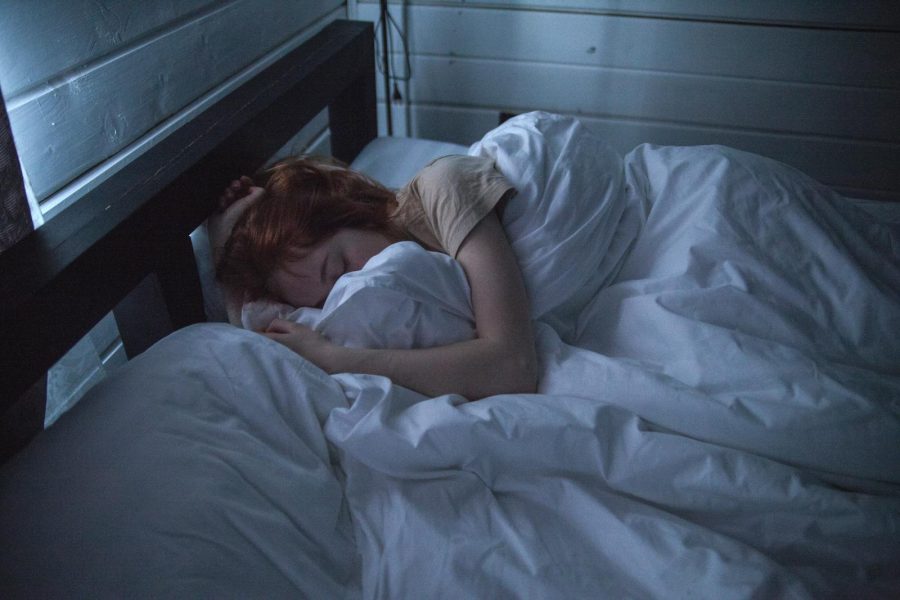Understanding Sleep and Mental Health
The Interconnection Between Sleep and Mental Health
So, what’s the deal with sleep and mental health? They go together like peanut butter and jelly, really. The Sleep Foundation has some juicy tidbits for you: How you snooze can seriously mess with how you feel mentally and emotionally. Catching Zs like a pro? You’re likely to feel better. Have a rough night? Not so much. If you’re tossing and turning, you might find your depression or anxiety taking a front seat. It’s like a dance where the two never miss a step: mental health shapes sleep, while restless nights can really rile up mental peace.
| Mental Health Condition | Sleep Impact |
|---|---|
| Depression | Sleep struggles may boost those low feelings. |
| Anxiety | No shut-eye can make anxiety go wild. |
| Bipolar Disorder | On-and-off sleep can bring on highs and lows. |
Good, solid shut-eye, especially when you’re hitting that REM zone, is your brain’s best friend. It helps you keep calm and carry on, sharpening up focus, learning, and memory skills (Columbia Psychiatry).
Impact of Sleep on Emotional Health
You know those days you’re extra cranky? The culprit might be lousy sleep. Sleep keeps your feelings in check. When you’re not catching enough winks, you’ll sweat the small stuff and smile less (Columbia Psychiatry). REM sleep acts like a wise friend, helping your brain sort out emotions, absorb happy vibes, and keep mood swings at bay.
| Sleep Component | Emotional Health Impact |
|---|---|
| REM Sleep | Helps keep emotions neat, keeps mood steady. |
| Poor Sleep | Pumps up the grumps, cuts down the smiles. |
Want to up your happiness game with better sleep? Check out some sleep hygiene tips. This involves sticking to a regular sleep routine, making your bedroom a cozy nest, and unwinding before bed with activities like meditation for better sleep.
Curious for more on how sleep shapes the mind? Dive into sleep deprivation and mental health and why good sleep matters.
Effects on Mental Health Conditions
When it comes to sleep and mental health, it’s like a dance—sometimes graceful, sometimes a bit like dancing with two left feet. Getting good sleep is a major player in managing conditions like depression, anxiety, and the quirky sleep habits of those with bipolar disorder.
Influence of Sleep on Depression and Anxiety
There’s a messy, love-hate bond between sleep and mental health—if you don’t get enough shut-eye, depression can sneak up on you, making it harder to juggle life’s daily circus. On the flip side, feeling down can leave you tossing and turning all night, adding sleep problems like insomnia into the mix.
Anxiety’s another slippery customer, tangled up with how you sleep. Not enough Zs can crank up worry and stress, and then wham!—you’re stuck in a loop where anxiety messes even more with your sleep. The American Psychiatric Association points out that adults need that sweet spot of seven to nine hours of sleep each night to keep their minds chill.
| Mental Health Issue | Sleep Woes |
|---|---|
| Depression | Stirs up or worsens those gloomy feelings |
| Anxiety | Cranks up stress and wrecks sleep |
For some tips to snag better sleep, check out our guides on how to get better sleep and sleep hygiene tips.
Sleep Patterns in Bipolar Disorder
Folks with bipolar disorder have their own sleep playlist, with tunes switching wildly based on whether they’re up or down. Riding high in a manic phase, sleep might be ditched entirely, but there’s still endless energy to ride without a hitch. Meanwhile, when things turn gloomy, sleeping too much might just become the game plan, stuck in a bed-to-bedtime repeat.
Getting a grip on these sleep patterns is a key part of keeping moods even and life a bit more balanced for those with bipolar disorder. Skimping on snooze time can spark manic highs, while snoozing too much pushes depressive lows.
Here’s a peek at the sleep groove during various bipolar phases.
| Phase | Sleep Vibe |
|---|---|
| Manic | Barely any shut-eye, energy overload |
| Depressive | Sleeping too much (hypersomnia), energy nosedive |
Tuning your sleep is important for handling bipolar disorder. Check out some helpful reads on improving sleep quality and better sleep habits.
Sticking to good sleep habits and steady sleep routines isn’t just wise—it’s essential for tackling these conditions. For a dose of feel-good sleep advice, look at our articles on benefits of good sleep and ways to relax before bed.
Sleep Disorders and Mental Health
Figuring out how sleep disorders and mental health connect can boost how you feel day to day. If you’re tangled up with insomnia, PTSD, or ADHD, you’ve probably noticed how lousy sleep can stir things up.
Insomnia and Its Relationship to Mental Health
Struggling to drift off or keep snoozing? Welcome to insomnia, which tends to show up with a suitcase full of mental health troubles. Bad sleep hitches a ride with depression, forming a two-way street where they both mess with each other (Elsevier). So, feeling blue might lead to sleepless nights, and vice versa.
| Condition | Seen in Insomnia Patients |
|---|---|
| Depression | 60% |
| Anxiety | 50% |
| Bipolar Disorder | 20% |
| PTSD | 35% |
Figures say thanks to Mayo Clinic
Insomnia throws a wrench into how you handle your emotions. Skimping on sleep can make stress seem ten times worse and wipe the smile right off your face (Columbia Psychiatry). This makes battling mental health stuff even tougher.
There’s hope: cognitive behavioral therapy for insomnia (CBT-I) can help smooth out sleep troubles and mental rough patches. For more tips, check out our piece on improving sleep quality.
Sleep Problems in PTSD and ADHD
Folks dealing with PTSD or ADHD often don’t sleep like a baby, which doesn’t help their mental state.
PTSD and Sleep Problems
If PTSD’s your burden, chances are it brings nightmares and pesky hyperarousal along, chopping up your sleep. This creates a mean loop—crummy sleep flares up PTSD symptoms, which then mess up sleep even more.
| Symptom | Seen in PTSD Patients |
|---|---|
| Nightmares | 50% – 70% |
| Hyperarousal | 80% |
| Sleep Fragmentation | 60% |
Thanks, Mayo Clinic
Getting better sleep with PTSD might mean juggling meds, therapy, and good sleep habits. Have a look at our sleep hygiene tips for some practical advice.
ADHD and Sleep Problems
ADHD often shows up to the sleep party uninvited, and it’s not shy about causing disruptions—from taking forever to fall asleep to restless tossing and turning.
| Sleep Issue | Seen in ADHD Patients |
|---|---|
| Sleep Onset Delay | 50% |
| Restless Sleep | 70% |
| Night Wakings | 60% |
Numbers courtesy of Mayo Clinic
Handling sleep blips in ADHD might mean switching up your bedtime strategies, looking at meds, and sticking to a routine. Get the scoop on better sleep habits to keep things under control.
Nailing down the link between sleep and mental health shows why sorting out sleep can make a big difference. For more insights, dive into our other reads on how to get better sleep and the benefits of good sleep.
COVID-19 Pandemic Impact
Increased Sleep Issues During the Pandemic
Boy has this pandemic messed with our sleep! It’s like insomnia decided to throw a wild party and forgot to invite Sandman. It was bad enough before, but now it’s like “Coronasomnia” is the unwelcome guest that just won’t leave. Stress, screwy schedules, and being stuck at home with Netflix as your only treadmill really took a shot at our shut-eye.
| Factor | Impact on Sleep |
|---|---|
| Stress | Cranks up cortisol, making counting sheep an Olympic sport |
| Changes in Routine | Screws with your body’s clock, leaving sleep patterns bizarro |
| Reduced Physical Activity | Turns you into a restless zombie with excess energy |
Yup, Columbia Psychiatry said over half of Americans have found themselves battling with sleep brawls since COVID hit.
Addressing “Coronasomnia” and Stress
Now, it’s time we kick “Coronasomnia” to the curb and regain our sleep mojo. Here’s how you can do just that.
Strategies to Combat Coronasomnia:
- Establish a Solid Sleep Schedule: Yep, you’re not a teenager anymore. Same bedtime and wake-up every day helps your brain get with the program.
- Build a Chill Bedtime Routine: Put down the to-do list, pick up a book or chill with some jazz. Sneak a peek at our ways to relax before bed.
- Ditch the Screens: Your phone can blow up without you checking every beep. Step away from super screen hypes at least an hour before sleep for the win.
- Stress? Meet Your Match: Say goodbye with meditation for better sleep or some good ol’ deep breathing. Bye, bye anxiety, hello dreams.
Want more? Check out our sleep hygiene tips and how to get better sleep, your one-stop shop for a dreamy night.
To kick this sleep drama out, a little effort goes a long way. Rate up your slumber game and kick stress into touch. Catch more zzz’s the smart way at our improving sleep quality corner. Sweet dreams, future sleep champion!
Improving Sleep Quality
Getting a solid night’s sleep is essential for your mental health. Here’s how you can snooze better.
Cognitive Behavioral Therapy for Insomnia (CBT-I)
CBT-I stands as a leading method for tackling that pesky chronic insomnia. This therapy takes a good look at the thoughts and actions ruining your sleep and reshaping them for the better. Here’s what it’s all about (Columbia Psychiatry):
- Stimulus Control: This one’s about making your bed the sleep zone and nothing else. Head to bed only when you’re feeling drowsy, and if you’re just staring at the ceiling, ease out until you’re ready to catch those z’s.
- Sleep Restriction: It’s not about how long you lounge in bed but more about syncing bedtime with actual sleep time. This helps ramp up sleep drive and smooths out slumber.
- Relaxation Techniques: Slow things down with deep breaths, relaxing your muscles bit by bit, or getting your mind right with meditation. For more chill-out methods, drop by meditation for better sleep.
- Cognitive Therapy: Fix your sleep mindset by weeding out negative thoughts and setting realistic sleep goals. This can ease that sleep-related anxiety.
CBT-I packs a punch against insomnia, with studies backing how it peps up mental health, curbing depression and anxiety (PubMed Central).
Strategies for Better Sleep Habits
Sprucing up your sleep habits can make a big difference. Try these tips:
- Keep a Regular Sleep Routine: Stick to a steady bedtime and wake-up time, weekends included. This steadies your body clock.
- Wind Down Pre-Bedtime: Do relaxing activities, like reading or a warm bath. Stay clear of screens; their blue light messes with sleep.
- Set the Stage for Sleep: Make your room cool, dark, and silent. Earplugs or a white noise setup can hush the disruptions.
- Steer Clear of Stimulants: Skip caffeine and nicotine near bedtime—they keep you wired. Be mindful about drinking alcohol too; it can mess with your sleep.
- Stay Active: Regular exercise helps you fall asleep quicker and sleep deeper. Just skip the hardcore workouts right before bed (exercises for better sleep).
- Mind Your Pre-Bedtime Meals: Big or heavy meals can cause tummy trouble, keeping you up.
More handy tips:
| Strategy | Description |
|---|---|
| Limit Naps | Keep daytime naps brief (20-30 minutes) and avoid them late in the day. |
| Tame Stress | Chill out with stress-busters like journaling, yoga, and deep breathing to snooze more soundly (ways to relax before bed). |
Better sleep helps lift your mental health and perks up your life. For more, swing by the sections on improving sleep quality, better sleep habits, and the benefits of good sleep.
Importance of Sleep and Mental Health
Benefits of Good Sleep on Overall Health
Getting decent sleep is like having a magic ingredient for feeling awesome. Adults usually need around 7-9 hours of snooze time to cruise through life smoothly (American Psychiatric Association). Sleep fuels your brain and body, helping with:
- Brain Power: Boosts memory, learning, and making smart choices.
- Fighting Germs: Bolsters your body’s defense against those pesky bugs and viruses.
- Keeping Fit: Balances hunger hormones and keeps your weight in check.
- Handling Emotions: Helps you keep your cool and not snap at others.
Lack of enough shut-eye can mess with your health and stir up problems like feeling blue or anxious. Curious about why good sleep matters? Check out our take on the benefits of good sleep.
| Health Aspect | Benefits of Good Sleep |
|---|---|
| Brain Power | Better memory, learning, and decisions |
| Fighting Germs | Stronger defense against bugs |
| Keeping Fit | Controlled appetite, healthier weight |
| Handling Emotions | Better mood control, less crankiness |
Promoting Better Mental Well-being through Restful Sleep
Getting better sleep can work wonders for your mental state. Quality sleep often leads to fewer feelings of gloom, jitters, and stress bombs (PubMed Central). Here’s how great sleep can perk up your mental health:
- Keeping Your Cool: Regular snooze patterns help balance your mood and lift your spirits.
- Easing Stress: Restful sleep can lower stress and help you tackle life’s curveballs like a pro.
- Clear Mind: Better sleep habits are linked to a lower chance of serious mental issues.
To catch those Zs, try sticking to a regular sleep routine, make your bedroom comfy, and avoid late-night coffee runs. Need more tips? Swing by our guide on how to get better sleep.
Plus, treatments like cognitive behavioral therapy for insomnia (CBT-I) show some good results for sleep and mental peace. CBT-I helps you spot and change bad bedtime habits, boosting both sleep and mood (Mayo Clinic). To dive deeper into sleep-strategies, see our article on improving sleep quality.
By catching better sleep, you’re on the path to a clear mind and a happier life. Check out these strategies and resources to find your way to dreamland bliss.










